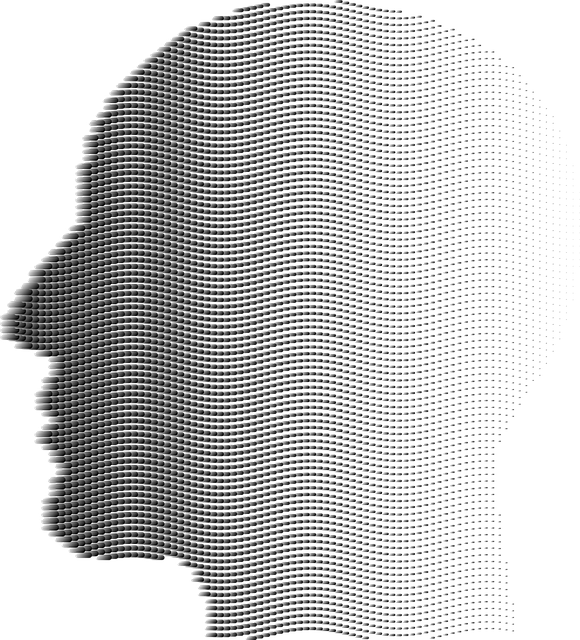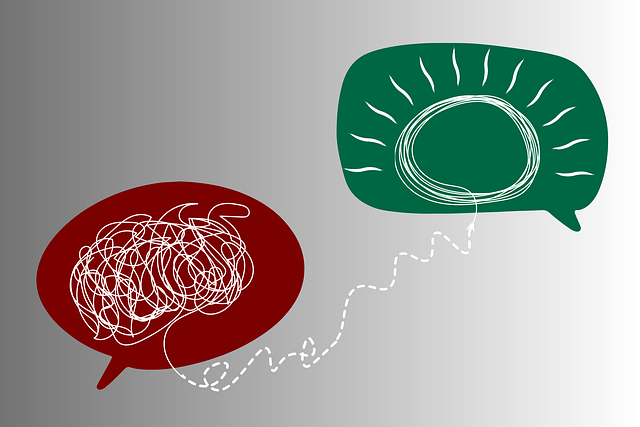Navigating Mental Illness: Finding Support through Littleton Anger Management Therapy
Littleton Anger Management Therapy focuses on tailored, effective treatment for mental health issues…….
In a world where emotional well-being is increasingly recognized as a cornerstone of overall health, anger management therapy has emerged as a vital component of mental health care. Among the various therapeutic approaches, Littleton Anger Management Therapy (LAMT) stands out for its unique methodology and significant impact on individuals struggling with anger-related issues. This article aims to delve into the intricacies of LAMT, exploring its definition, global reach, economic implications, technological integrations, regulatory frameworks, challenges, and promising future prospects. By the end, readers will gain a comprehensive understanding of this therapeutic practice and its role in transforming lives worldwide.
Definition:
Littleton Anger Management Therapy is a structured, evidence-based approach designed to help individuals identify, understand, and manage their anger effectively. This therapy draws from various psychological theories and techniques, combining elements of cognitive-behavioral therapy (CBT), mindfulness practices, and communication skills training. The core objective is to equip clients with healthy coping strategies to reduce angry outbursts and improve interpersonal relationships.
Core Components:
Education on Anger: Participants learn about the physiological and psychological aspects of anger, its causes, and typical triggers. This knowledge empowers them to recognize their emotional responses.
Cognitive Restructuring: Clients identify and challenge negative thought patterns associated with anger, replacing them with more rational and adaptive beliefs.
Relaxation Techniques: LAMT introduces mindfulness meditation, deep breathing exercises, and progressive muscle relaxation to help individuals calm themselves during moments of heightened anger.
Problem-Solving Skills: This component focuses on teaching practical strategies for addressing life’s challenges without resorting to anger. It involves skill-building sessions and role-playing scenarios.
Interpersonal Effectiveness: Participants learn effective communication techniques, assertive behavior, and conflict resolution skills to improve relationships and reduce anger-inducing situations.
Historical Context:
The roots of LAMT can be traced back to the 1980s when researchers and clinicians began developing structured programs to address chronic anger issues. The approach evolved from earlier cognitive-behavioral interventions and incorporated techniques shown to be effective in treating anger disorders. Over time, LAMT has been refined and backed by extensive research, establishing itself as a leading therapeutic method for anger management.
Significance:
Anger is a natural emotion, but when it becomes chronic or intense, it can lead to significant problems in relationships, work, and overall well-being. LAMT offers a proactive solution by teaching individuals how to manage their anger constructively. This therapy has proven particularly effective for those with anger disorders, post-traumatic stress disorder (PTSD), and other mental health conditions characterized by heightened anger.
Littleton Anger Management Therapy has garnered international recognition and adoption due to its evidence-based approach and demonstrable results. Here’s an overview of its global impact:
| Region | Impact and Trends |
|---|---|
| North America | LAMT is prevalent in the US and Canada, with many private practices and clinics offering this therapy. Research shows high patient satisfaction rates, indicating its effectiveness. |
| Europe | The UK and Germany have seen a rise in LAMT integration within the national healthcare systems. European researchers contribute significantly to the evidence base through clinical trials. |
| Asia-Pacific | China and Japan are leading the way in LAMT adoption, with numerous specialized centers. Cultural adaptations of the therapy show promising results, indicating its adaptability across diverse societies. |
| Middle East & Africa | Growing awareness of mental health issues has led to increased interest in LAMT. Some countries are implementing it as a part of their national behavioral health strategies. |
The economic landscape surrounding Littleton Anger Management Therapy is multifaceted, involving both direct and indirect costs and benefits:
Market Size: The global anger management therapy market was valued at USD 523 million in 2021 and is projected to grow at a CAGR of 7.8% from 2022 to 2030 (Source: Grand View Research). This growth is attributed to the increasing prevalence of mental health disorders and rising awareness about anger management.
Investment Patterns: Private equity firms and venture capital investors have shown interest in LAMT startups and established clinics, recognizing the therapy’s potential for positive social impact and financial returns.
Cost-Effectiveness: Research suggests that LAMT can lead to significant cost savings in the long term by reducing hospital admissions, emergency room visits, and medication costs associated with anger-related disorders.
Employment Impact: The growing demand for LAMT practitioners creates job opportunities for therapists, counselors, and mental health professionals, contributing to the overall mental health workforce.
Technology has played a pivotal role in enhancing and expanding Littleton Anger Management Therapy:
Online Platforms: Telehealth services have made LAMT more accessible globally. Online therapy platforms allow clients to receive treatment remotely, overcoming geographical barriers. This trend is especially beneficial for individuals in rural or underserved areas.
Mobile Apps: Several apps inspired by LAMT techniques offer users personalized anger management tools and resources. These apps provide daily mindfulness exercises, mood tracking, and coping strategy reminders, promoting self-regulation.
Virtual Reality (VR): VR technology is being explored for exposure therapy in treating PTSD and related anger issues. Immersive VR environments can help individuals confront and overcome traumatic memories and associated anger responses.
Artificial Intelligence (AI): AI algorithms are used to analyze large datasets of patient outcomes, enabling researchers to identify effective treatment protocols and personalize LAMT plans. AI-assisted therapy platforms provide real-time feedback and support.
The regulatory landscape for Littleton Anger Management Therapy varies across jurisdictions but is generally shaped by broader mental health policies:
Licensing and Certification: Most countries require LAMT practitioners to be licensed or certified by relevant professional bodies. These organizations set standards for education, training, and ethical practice.
Reimbursement Policies: Healthcare systems in many countries include anger management therapy as a covered service under certain conditions. Private insurance providers also vary in their reimbursement policies, influencing access to LAMT.
Research Funding: Governments and private foundations invest in research to support the development and refinement of LAMT. This funding stimulates innovation and improves treatment outcomes.
Global Collaborations: International organizations, such as the World Health Organization (WHO), promote mental health initiatives that include anger management programs, fostering global standards and best practices.
Despite its proven benefits, Littleton Anger Management Therapy faces several challenges and criticisms:
Stigma: Stigma surrounding mental health issues can deter individuals from seeking LAMT. Breaking down stigma through education and awareness campaigns is essential to increasing access.
Lack of Training: Some critics argue that not all therapists receive adequate training in anger management techniques, potentially compromising treatment quality. Continuous professional development is crucial to addressing this concern.
Cultural Sensitivity: LAMT must be adapted to respect cultural differences and beliefs. Therapists need to be culturally competent to ensure the effectiveness of treatment across diverse populations.
Long-term Compliance: Maintaining consistent therapy attendance can be challenging, especially for individuals with busy schedules or limited resources. Offering flexible scheduling and affordable options can improve compliance.
John, a 35-year-old father of two, sought LAMT after repeatedly losing his temper at work and home, leading to strained relationships. Through LAMT, he learned to identify triggers and practiced mindfulness techniques to manage his anger. Over several months, John noticed significant improvements in his emotional regulation and communication skills, resulting in better interactions with colleagues, partners, and children.
A group of teenagers from a high-risk neighborhood participated in an adapted LAMT program focused on family dynamics. The therapy aimed to improve communication and resolve conflicts within families. Participants learned problem-solving skills and gained insights into their emotional responses. Follow-up interviews revealed that the teens demonstrated better anger control and more positive interactions with family members, contributing to improved overall well-being.
A study focusing on veterans with post-traumatic stress disorder (PTSD) and comorbid anger issues implemented LAMT as part of their treatment regimen. The therapy combined exposure therapy and cognitive restructuring techniques. Results showed substantial reductions in anger symptoms, improved sleep quality, and enhanced overall functioning. This case highlights the potential of LAMT in treating complex mental health conditions.
The future of Littleton Anger Management Therapy looks promising, with several growth areas and emerging trends:
Personalized Therapy: Advancements in technology and research will enable therapists to tailor LAMT plans to individual needs, making treatment more effective and engaging.
Integration with Digital Health: Mobile apps and online platforms will continue to evolve, providing continuous support between therapy sessions and expanding access to LAMT globally.
Cultural Adaptation: As LAMT gains popularity worldwide, therapists will need to adapt the therapy to suit diverse cultural contexts, ensuring its effectiveness across different populations.
Research on Specific Populations: Future studies will focus on optimizing LAMT for specific groups, such as adolescents, older adults, and individuals with co-occurring disorders.
Littleton Anger Management Therapy represents a significant advancement in the field of mental health care, offering a structured and evidence-based approach to managing anger effectively. Its global reach, economic implications, technological integrations, and positive outcomes demonstrate its value as a therapeutic intervention. Despite challenges, ongoing research, and adaptations will further enhance LAMT’s potential. As awareness continues to grow, this therapy will undoubtedly play a pivotal role in improving the lives of countless individuals worldwide, fostering healthier communities and a more balanced global society.
Q: What is anger management therapy, and who benefits from it?
A: Anger management therapy is a structured program designed to help individuals understand and control their anger. It benefits anyone struggling with chronic anger issues, including those with anger disorders, PTSD, or other mental health conditions.
Q: How does LAMT differ from traditional talk therapy?
A: LAMT goes beyond conventional talk therapy by incorporating specific techniques like mindfulness training, problem-solving skills, and communication strategies tailored to anger management. It offers a more structured and practical approach.
Q: Is LAMT covered by insurance?
A: Coverage varies; some insurance providers offer partial or full reimbursement for LAMT. Check with your insurer or the therapy center to understand your specific benefits.
Q: Can LAMT help me if I have a low tolerance for stress?
A: Yes, LAMT can teach you healthy coping strategies to manage stress and anger more effectively. It empowers individuals to respond calmly in stressful situations, improving overall emotional well-being.
Q: How long does it take to see results from LAMT?
A: Results vary; some individuals experience improvements within a few weeks, while others may take several months. Consistency in therapy attendance and practice of learned skills are crucial for optimal outcomes.

Littleton Anger Management Therapy focuses on tailored, effective treatment for mental health issues…….

Trauma significantly impacts daily life and requires specialized support like Littleton Anger Manage…….

Littleton Anger Management Therapy (LAMT) emphasizes the importance of coping skills in managing lif…….

Crisis Intervention Teams (CITs), featuring professionals like those at Littleton Anger Management T…….

Trauma survivors can find relief through Littleton Anger Management Therapy (LAMT), offering special…….